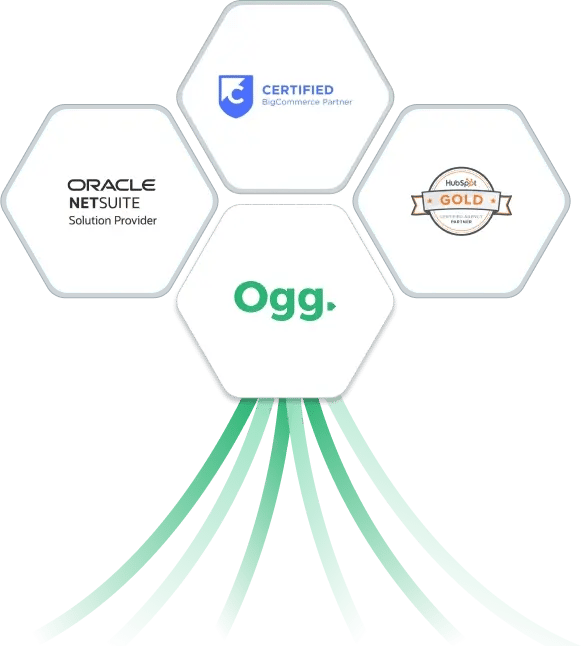Powerful tech platforms for growing businesses
Painless implementation for ERP, CRM and eCommerce systems: NetSuite, BigCommerce, Hubspot, and more.


We’re Ogg
At Ogg, we love technology and putting trusted products together to build powerful, bespoke platforms for bespoke businesses. We’re technical, experienced and know how to deliver projects that let our customers blossom. With over a decade of experience in implementing NetSuite and other leading platforms, our team includes chartered accountants and IT experts experienced in applications design, development and implementation. We are comfortable working with applications and setting up integrations across multiple different on-site and cloud-based platforms.

Experts in Netsuite, BigCommerce, and more.
We’ve been working closely with NetSuite for over 15 years with over 250 successful deployments. It’s the best cloud ERP and it’s at the core of what we do. For your eCommerce needs, we’re a leading BigCommerce partner in A/NZ. On top of these, we’re experts in a range of cloud tech, so no matter how far your business is along its cloud journey, we can foster tangible growth. Our team can connect multiple systems across multiple platforms to ensure your business has the right tech stack to scale.
"I'm fascinated with the solution and with what we can achieve."
"Consolidation and reporting has been excellent."
.svg)
.svg)

The right information to the right people
Direct your content precisely where it matters using our powerful targeting system.
Trusted by 650+ customers globally









Up and running in 90 days.
We have a project management and change methodology that works, but we recognise that you also have a business to run – so the approach is flexible and tailored to you. And we don’t muck around. When both of our teams are humming, we can do full ERP implementations in three months. All of our solutions are tailored to your business to ensure the Ogg team can lighten your workload as much as your business may need. Our implementation teams have been handpicked for their skill and experience with the platforms we specialise in, so you can rest assured that your business is in good hands.
Our Testimonials
“I'm fascinated with the solution and with what we can achieve."
Ogg were brought in to solve some issues we were having and I was impressed with their breadth of knowledge and ability to think through the issues to arrive at practical solutions. Their background in accounting was also very handy...”
“Invoicing and inventory, it all just becomes a lot easier."


Still not sure?
Try our solutions for free!
Explore your options without cost or commitment. See the benefits for yourself before making a decision.


